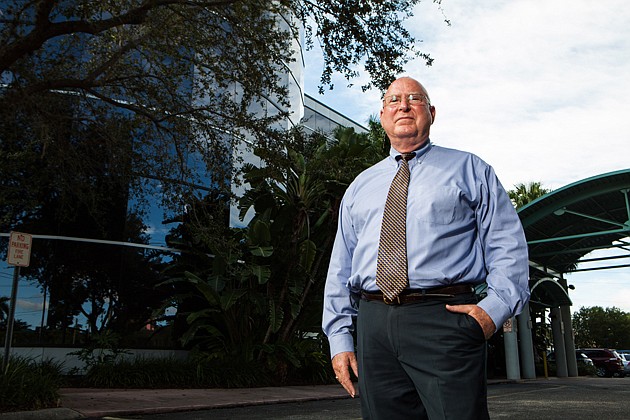- July 26, 2024
-
-
Loading

Loading

Few people are as well versed as Kenneth Wilkinson is on the politics of property taxes in Florida.
The Lee County Property Appraiser was the driving force behind Save Our Homes, the constitutional amendment that caps residential homesteaded property to 3% or the rate of inflation, whichever is less. When voters approved it in 1992, the cap was designed to protect homeowners from spiraling property values and control government spending.
Of course, while the real estate boom protected homesteaded property owners, owners of second homes and commercial property weren't afforded the same protection. To fix that, in 2008 voters approved a constitutional amendment putting a 10% cap on the annual assessment increases on non-homesteaded properties. And homesteaded property owners could carry over $500,000 of their homestead assessment to a new home, an idea Wilkinson termed “portability.”
Wilkinson says all these caps on assessment are good because he says they control how much revenue municipal taxing authorities can raise. These taxing authorities (Lee County alone has 92 taxing authorities) have been reluctant to raise the tax millage rates for fear of taxpayer backlash. “It has brought truth to millage,” Wilkinson says.
Wilkinson is particularly keen about Amendment 4 and Amendment 10, two meaningful tax-cut proposals he says have a 50% chance of passing. “The only opposition is government itself,” Wilkinson says.
Looking more broadly, Wilkinson acknowledges the problems with the cat-and-mouse game that taxpayers and government play with tax law. “I'm a flat-tax advocate,” he says. But, he adds, “You've got to deal in realities. In a perfect world we wouldn't have exemptions.”
Here's Wilkinson's take on the tax amendments on the ballot in November and what he thinks the chances are of each passing:
Amendment 2
This amendment expands the availability of homestead property discounts for combat-disabled veterans to include those who were not Florida residents when they joined the military.
Wilkinson's verdict: Good. “It's one of those feel-good things,” says Wilkinson, himself a Vietnam veteran. “I don't anticipate it's going to affect the tax rolls.”
Chances of passing: 100%
Amendment 4
This four-part amendment repeals the recapture provision that allows taxing authorities in some circumstances to increase the assessed value of a property even when the just value falls. It also reduces the cap on the annual increase in assessments on non-homesteaded property to 5% (from 10% currently). The third part provides an additional homestead exemption to anyone who hasn't owned a house in the last three years. Lastly, the amendment pushes back the repeal of the 2008 amendments on the limits for non-homesteaded property to 2023 (from 2019 currently).
Wilkinson's verdict: “I'm going to vote for this,” he says. He's especially in favor of eliminating the recapture provision and lowering the cap on the annual increase in non-homesteaded properties. But he's concerned that the substantial homestead exemption for those who haven't owned a home in at least three years (an amount equal to 50% of a property's just value, not to exceed the median value of all homesteaded properties in the county) could push people to buy more home than they can afford. What's more, that exemption drops by 20% each year before ending after five years.
Chances of passing: 50%
Amendment 9
This amendment gives the Florida Legislature the authority to totally or partially exempt the homestead property of a surviving spouse of a military veteran or first responder (such as a law enforcement officer or firefighter) who died in the line of duty.
Wilkinson's verdict: “It's a positive thing,” he says.
Chances of passing: 100%
Amendment 10
This two-part amendment doubles the tangible-property tax exemption from ad valorem taxes to $50,000 (from $25,000 currently) and it allows municipalities to provide for additional exemptions by ordinance.
Wilkinson's verdict: Municipalities could pass ordinances to effectively eliminate tangible-property taxes, the bane of many small businesses. “That could be substantial dollars,” says Wilkinson. “I don't like tangible-property taxes.” Wilkinson says tangible-property taxes are a form of double taxation. For example, a business owner today with more than $25,000 worth of tangible property pays sales tax when he buys office furniture and the tangible-property tax annually thereafter.
Chances of passing: 50%
Amendment 11
This amendment allows the Florida Legislature to exempt homesteaded properties with a just value of less than $250,000 for an owner who has maintained permanent residency on the property for at least 25 years, who is at least 65 years old and has a low annual household income (currently defined as less than $27,030).
Wilkinson's verdict: “Who could be opposed to it?” But he wonders how many people it really affects in Lee County or elsewhere. “I bet you we don't have 10,” he says. “It came out of Dade County,” he smiles.
Chances of passing: 100%